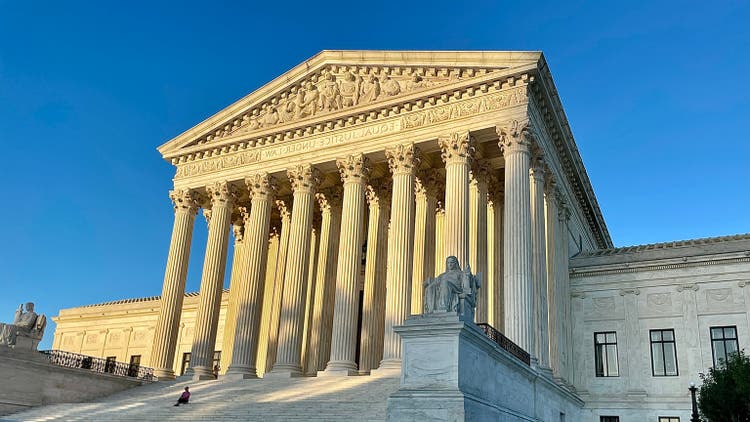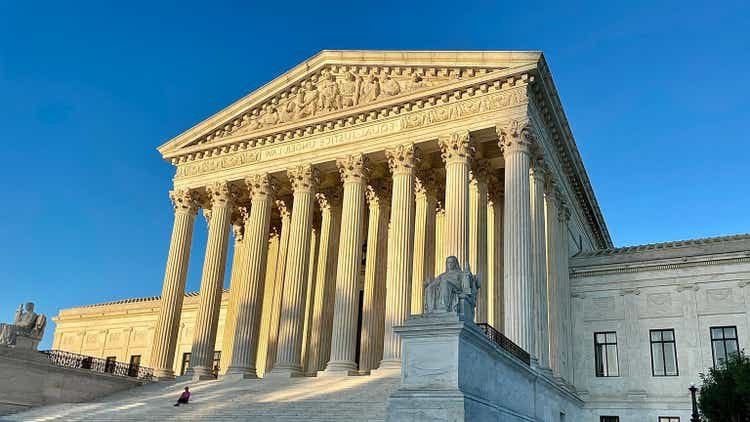
Douglas Rissing
The Supreme Court rejected the Securities and Exchange Commission’s use of in-house proceedings in cases the regulator brings against investors accused of securities fraud.
“A defendant facing a fraud suit has the right to be tried by a jury of his peers before a neutral adjudicator,” Chief Justice John Roberts wrote in the decision on Tuesday. “Rather than recognize that right, the dissent would permit Congress to concentrate the roles of prosecutor, judge, and jury in the hands of the Executive Branch. That is the very opposite of the separation of powers that the Constitution demands.”
In the 6-3 ruling, the Supreme Court ruled that the regulator’s in-house proceedings that seek penalties for securities fraud violate the U.S. Constitution’s 7th Amendment right to a jury trial.
Dissenting Justice Sonia Sotomayor wrote that the court decision may cause “chaos” across the government.
“The majority today upends longstanding precedent and the established practice of its coequal partners in our tripartite system of Government,” Sotomayor wrote. “Because the Court fails to act as a neutral umpire when it rewrites established rules in the manner it does today, I respectfully dissent.”
The Supreme Court reaffirmed the Fifth Circuit’s ruling that vacated on order against Texas-based hedge fund manager George Jarkesy. Jarkesy was originally fined $300,000 and ordered to repay $680,000 in alleged ill-gotten gains by the SEC.
The SEC appealed to the Supreme Court after the 5th US Circuit Court of Appeals in New Orleans threw out the penalties against Jarkesy and his Patriot28 investment adviser.











